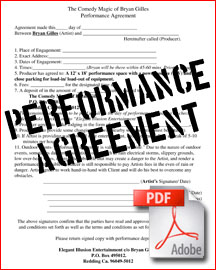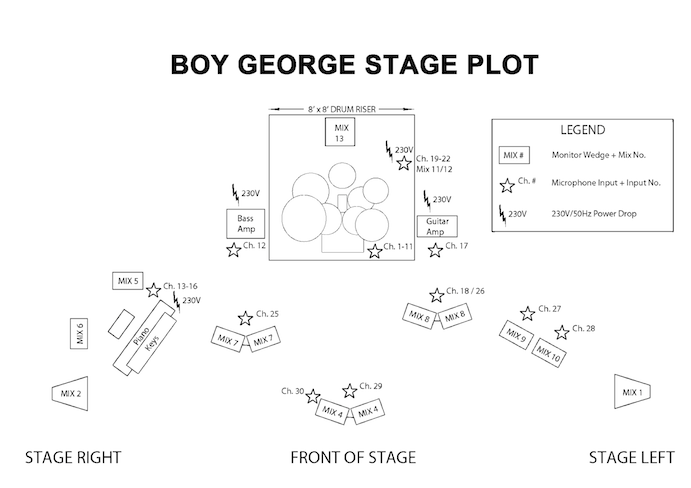Most gigs are booked on a handshake, a phone call or an email.
But what happens when it all goes wrong?
What happens if you are booked to play a big gig this weekend, the promoter has spent thousands on advertising, stages and production and at the last minute your singer has an accident and can't sing.
If no performance agreement is in place, the promoter is left out of pocket and you will be left with the worst reputation in the world.
A performance agreement details everything that will and could happen so that in the event something goes wrong (trust me, one day it will), then you are covered and everyone knows what will happen. You will walk away from the situation with an intact reputation as a band who does what they say they are going to do.
Performance Agreements are a legal document that lay out...
- Who you are
- Where you are playing
- What time you will arrive
- What time you will start playing
- How long your breaks will be and how many you will take
- When you will finish
- When you will pack up
- How much you will charge
- How and when you will be paid
- Any other costs (transport, accommodation, GST)
- Any other benefits (meals, drinks).
As well as these things, it details softer things like:
- What happens if the venue cancels the gig
- What happens if you cancel the gig
- What happens if the gig has to be cancelled due to weather or safety
- Who is liable if something gets damaged or stolen
Plenty of bands can tell stories of going up to a bar to get paid at the end of the night only to find the bar wants to doc $100 bucks off their fee because they didn't play for as long as they said they would, or the bass player drank a whole pile of beer.
A good performance agreement avoids all doubt and eliminates uncertainty for all parties.
It makes you look professional and above all else, it will get you loads of gigs and filter out a load of shit gigs. If a venue is not prepared to sign a performance agreement then its not worth playing at that venue (ie they are probably going to screw you).
I spent a lot of time putting together a bulletproof performance agreement for a band I used to play with called Deaf Lemon, this should give you a good starting point for developing your own. This document got us loads of great gigs and saved us on a number of occasions when things went wrong.
Get it here.












